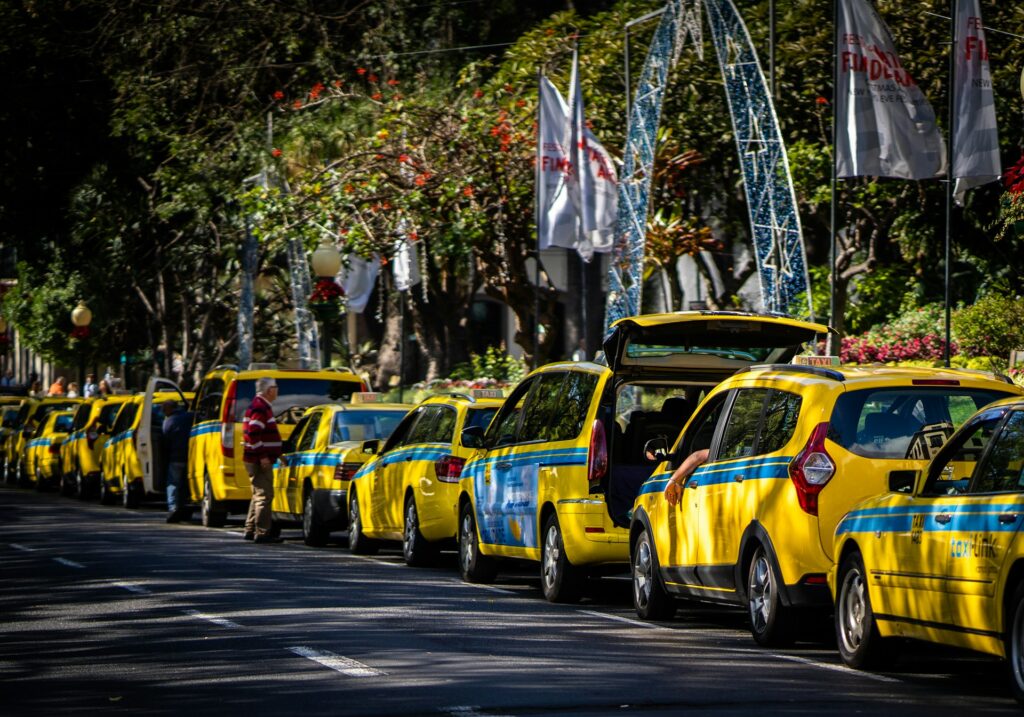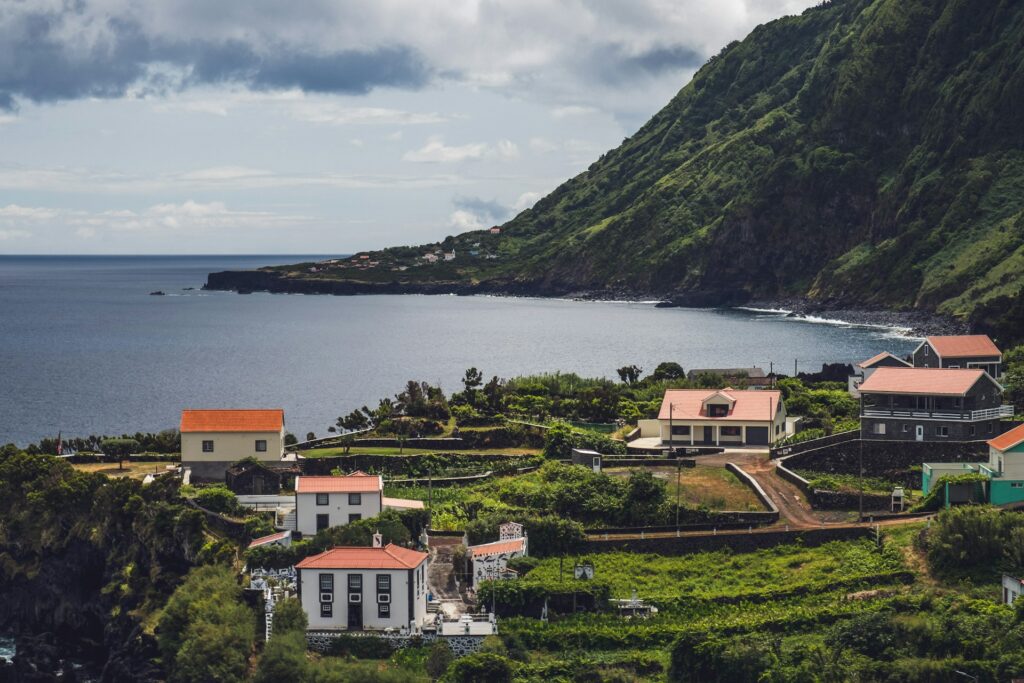Worried about Cost of Living in Azores? The breathtaking North Atlantic archipelago known as the Azores presents an enchanted way of life marked by rich scenery, a moderate temperature, and a special fusion of cultures.
For expatriates—especially those from Brazil, Germany, China, and beyond—the Azores have grown to be a somewhat popular place in recent years. Being a part of Portugal, it embraces a unique local identity while nevertheless keeping close links to the mainland. Still, like in any area, people thinking about moving or long-term visiting must be aware of the expense of living, especially in 2025.
Covering anything from shopping and meals to transportation and accommodation, this thorough blog investigates the expenses of Azorean living.

General Overview of the Azores
Comprising nine islands with unique attractions, the Azores, which lie roughly 1,500 kilometres west of mainland Portugal, have Thanks to its amazing natural beauty and booming eco-tourism business, the archipelago has grown even more popular in the travel and expatriate sectors.
The cost of living in the Azores can be considered as a mix of affordability, especially when compared to mainland Portugal’s bigger cities like Lisbon or Porto, and a few specific obstacles that come with island life, such as increased transportation expenses owing to the necessity for imports.
Significant numbers of expatriates from Brazil, Germany, China, the United States, Spain, the United Kingdom, Cape Verde, Italy, France, and Canada call the Azores home. These immigrants enhance the local way of life by bringing to the islands a range of cultural inspirations.
Those who intend to live in the Azores should monitor how their cost of living here stacks with other areas of Portugal and Europe.
Dining and Restaurants in the Azores
With a variety of choices from cheap restaurants to mid-range establishments, dining out in the Azores is somewhat reasonably priced. When compared to mainland Portugal or other European locations, the rates remain reasonable whether you short nibble at a local fast-food restaurant or your more leisurely three-course meal at a mid-range restaurant.
For example, a three-course supper for two in a mid-range restaurant will cost roughly €40, while a cheap lunch at a restaurant will run you about €10.
In terms of drinks, a regular cappuccino costs around €1.60, and domestic beer (0.5 liters) will set you back by about €2.00. These prices are lower than what one might find in larger tourist destinations, making the Azores an affordable place to eat and drink out.

Groceries and Markets in the Azores
Regarding grocery shopping in the Azores, the cost of food may vary based on whether the goods are imported or locally produced.
Generally speaking, food prices in the Azores are more reasonable than those in mainland Portugal; yet, some imported goods might be somewhat costly considering the additional expenses of transit from the mainland or elsewhere.
Nevertheless, the availability of locally grown food like fruits, vegetables, and dairy helps to keep expenses fair, especially for locals and those trying to eat seasonally.
Local products are usually cheaper in the marketplaces, and fresh vegetables abound. Local favorites like milk and potatoes, for instance, are rather reasonably priced.
In the Azores, imported goods—particularly wine and beer—can also be somewhat costly. Although domestic beer is quite cheap—about €1.80 per half-liter bottle—importing beer and other beverages can cost more depending on shipping costs.
For most, supermarket shopping in the Azores is manageable even if some expensive foreign items abound. One great approach to cutting expenses is to buy fresh food from nearby markets; this lets both locals and guests enjoy seasonal, premium goods.
Supermarkets and specialist stores abound for people who wish to stock up on more particular imported goods; but, their premium may result from the additional transportation expenses.
Transportation in the Azores
Getting around the Azores requires a mix of public transport, car rentals, taxis, and personal Budgeting depends on knowing the local transportation costs since getting about the Azores calls for a mix of public transportation, auto rentals, taxis, and personal vehicles.
Public transportation is reasonably priced; a one-way ticket for local travel is only €1.75. A monthly pass for €50.00 is offered for frequent commuters or visitors staying longer to grant unlimited access to the bus and other local public transportation options.
Though basic, the public transportation system of the islands is restricted to particular locations and paths and is sometimes less frequent than in bigger towns. For individuals living in rural or less developed areas of the Azores, it could thus not be the most practical solution.
Car rentals are a common choice for anyone desiring to travel outside the main towns and cities or for more freedom. Still, renting a car in the Azores may be somewhat costly; daily fees for a basic automobile mount up rapidly, particularly in the high season.
Given that gasoline now costs €1.60 per liter, one should also take the cost of fuel into account. Driving lengths can be more than expected with many of the island’s highways meandering across steep terrain; so, fuel expenses may rack up if you intend to visit extensively.
Though accessible, taxis can often be somewhat expensive. A taxi ride’s basic beginning charge is €5.00; clients will pay extra €1.24 for every kilometre driven. Should you have to wait for a cab to come back or for another reason, you should budget extra €5.00 an hour of waiting.
Therefore, even if cabs are handy, for longer trips or during peak demand they can rapidly become expensive.

Housing and Rent in the Azores
For Azores residents, one of the major outlay of funds is housing expenses. Location affects rent rates; flats in the city center fetch far more than those outside of town.
Renting a one-bedroom apartment in Ponta Delgada, the biggest city in the Azores, runs an average monthly cost of €816.67. Renting a one-bedroom apartment outside the city center for €566.67 per month will help people looking for more reasonably priced solutions save a lot, especially for longer visits.
Cost of Living in Azores
Location affects the prices for three-bedroom flats as well for groups or bigger families seeking extra accommodation. While the same three-bedroom apartment outside the city center can be rented for €825.00 per month, a three-bedroom apartment in the city center runs roughly €1,050.00.
Although these rent rates are higher than in rural parts of mainland Portugal, they are still somewhat affordable when compared to other European island locations, which makes the Azores an attractive place for anyone wishing to reside in picturesque and peaceful surroundings.
Purchasing an apartment in the Azores might be a major investment for people interested in real estate. An apartment in the city center costs €1,900.00 per square meter; outside of the center, the cost per square meter falls to €1,300.00.
The particular island affects the property prices in the Azores; São Miguel Island is the most costly in terms of real estate values, followed by other well-known islands including Faial and Terceira.
Although the Azores’ real estate market is usually steady, individuals who want to purchase should take into account the extra expenses of living on an island, including transportation of products and local services availability.
Notwithstanding these elements, the Azores continue to be a desirable place for people looking for a quiet life among one of the most beautiful and distinctive sites in Europe.
Utilities and Monthly Living Costs
For a normal 85m² apartment in the Azores, monthly utilities including power, water, heating, cooling, and waste collecting can run about €127.50. The season will somewhat affect the cost of utilities; greater power bills in the winter months when heating is required or in the summer if air conditioning is turned on. The most often paid-for utilities in the €127.50 are usually water use, garbage disposal, and electricity, which are the most frequent needs for the residents.
Size Of The Property
Though it varies based on the size of the property, the number of household members, and personal usage patterns, electricity consumption in the Azores is usually reasonably cheap when compared to bigger European cities.
Included in the whole monthly cost, water bills are yet another necessary utility expense. Although Azores’ water is rather cheap, it’s important to keep in mind that the islands experience regular droughs that could affect nearby water supplies systems.
Apart from fundamental needs, residents usually pay for internet and mobile services as well. In the Azores, high-speed internet comes really reasonably priced. Usually, a regular 60 Mbps connection or above is about €23.00 a month. This cost is reasonable for other areas of Portugal, and many providers give discounts or bundles if many services—like television or landline phone—are subscribed to.
Particularly when compared to other European cities, the overall cost of utilities and internet services for an 85 m² flat in the Azores is really reasonable. Utility costs vary depending on the time of year, home size, and personal energy use patterns; these factors also affect each other.

Childcare, Education, and Healthcare in Azores
Though international main schools can be costly, the Azores provide quite cheap childcare and education. While the annual tuition fee for an international primary school can run over €6,000, a full-day preschool in a private institution costs about €250 monthly.
Generally reasonably priced, Azores’ healthcare follows the Portuguese public healthcare system. Private healthcare offerings can be more expensive, though. Medical visit expenses and prescription drugs are reasonable when compared to many other European countries; private insurance is accessible for individuals looking for more coverage.
Takeaways about Cost of Living in Azores
Especially in terms of dining and transportation, the Azores provide a rare combination of reasonably priced living. Island life does, however, provide significant difficulties like more expensive imported products and property. Knowing the local cost structure will enable individuals intending to visit or relocate the Azores in 2025 make wise budgetary selections.
The archipelago offers a mix of reasonably priced living and outstanding services, regardless of your reasons for considering relocation to the Azores—its breathtaking scenery, energetic culture, or increasing expat population. Resources like the Association of Immigrants in the Azores and World Travel Awards might help one get better understanding about life in the Azores.
Having been voted Best Adventure Destination in Europe 2024 by the World Travel Awards, the Azores remain a popular destination for people searching for adventure and a slower pace of life. Furthermore adding to the region’s appeal as a must-see is its past, especially the well-known volcanic explosion on Faial Island.
In conclusion, while life in the Azores comes with a few higher costs, it offers a unique, tranquil environment that appeals to a growing number of expatriates and travelers alike.

Find Your Dream Property With Us
Portugal Investment Properties is your gateway to smart real estate investments in Portugal, offering savvy investors access to an exclusive collection of carefully curated properties.
Whether you’re searching for your dream home or a prime investment opportunity in Portugal’s prestigious market, we provide more than just listings – experience a personalized journey tailored to your aspirations.
Begin your journey to discover your perfect Portuguese retreat. Contact us today!
Looking to Invest in Portugal?
Explore our newest listings below!
Frequently Asked Questions About Cost of Living in Azores in 2025
What is the overall cost of living in the Azores, Portugal?
The cost of living in the Azores is generally more affordable than in mainland Portugal’s major cities, such as Lisbon or Porto. While some imported goods may be expensive, local products, housing, and utilities are quite reasonable.
How expensive is dining out in the Azores?
Dining in the Azores is relatively affordable. A meal in an inexpensive restaurant costs around €10, while a three-course meal for two in a mid-range restaurant will cost about €40.
What are grocery prices like in the Azores?
Groceries in the Azores can be reasonably priced, especially for locally grown items like milk, potatoes, and fresh vegetables. However, imported goods, such as wine and beer, can be more expensive due to shipping costs.
How much does it cost to rent an apartment in the Azores?
Rental costs in the Azores vary based on location. For example, renting a one-bedroom apartment in Ponta Delgada (the largest city) costs around €816 per month, while the same apartment outside the city center can cost about €567 per month.
Is transportation in the Azores affordable?
Public transport in the Azores is affordable, with a one-way ticket costing around €1.75. Car rentals and taxi rides are also available, but they can be more expensive, especially during the high season.
What are the utility costs in the Azores?
Monthly utility costs for an 85m² apartment in the Azores average €127.50, including electricity, water, heating, and garbage collection. The cost may vary depending on the season and energy consumption.
What are the healthcare and education costs in the Azores?
Healthcare in the Azores is relatively affordable, with public healthcare options available for residents. For education, childcare and schooling are reasonably priced, although international schools can be more expensive.
Are there any hidden costs of living in the Azores?
While the Azores can be affordable, there are additional costs to consider, such as the transportation of goods, especially imported items. Moreover, utilities can be higher in winter or summer months due to heating or air conditioning needs.
What are the best ways to save money in the Azores?
To save money, consider shopping at local markets for fresh produce and seasonal items. Renting a car for specific trips, rather than owning one, can also help reduce costs.
